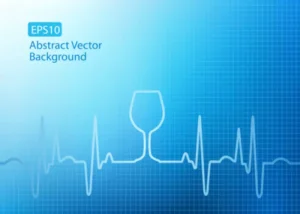
Unhelpfully, however, nowhere in the DSM-5 is this explicitly and transparently mentioned. In fact, the American Psychiatric Association (APA), who are the developers of the DSM, nonchalantly utilize the terms “substance use disorder” and “addiction” interchangeably on their website. Understanding these distinctions is crucial for effective treatment and support. It helps healthcare providers tailor interventions, assists policymakers in crafting more nuanced legislation, and enables individuals and families to seek the most appropriate help. It’s like having a detailed map when navigating a complex maze – the more information you have, the better your chances of finding the right path.
- It is by no means a substitute for professional medical advice, diagnosis, or treatment.
- Many drugs cause dependence but not addiction, for example, paroxetine [10] and clonidine [11].
- When the symptoms of mental and physical dependence are apparent, an addiction is usually present.
- Whether it’s prescription medications, smoking, or illicit street drugs, it can be difficult to manage your substance use and to know whether you’re heading towards addiction.
- People with addictions often carry stigma about their behavior, leading to shame and fear of seeking help.
More on Substance Abuse and Addiction
Physical dependence is when the body adapts to a substance’s presence. It leads to withdrawal symptoms if usage abruptly ends or is reduced. Once you become addicted to a substance, procuring and taking it can consume your thoughts and affect your mental state. You may feel emotionally reliant https://ecosoberhouse.com/ on it to relieve stress, discouragement, or boredom. A habit doesn’t consume your thoughts—even if you like doing it, it’s not an absolute necessity. Detox, residential, and outpatient addiction treatment using evidence-based therapies and gender-specific programs in serene South Florida.

Amygdala and Addiction: The Brain’s Role in Substance Abuse
Addiction and dependence are terms that are used interchangeably to describe an unhealthy, problematic reliance on drugs, alcohol, or other compulsive behaviors. Some people develop physical dependencies on a drug while others only develop a psychological (aka mental or emotional) dependence. You may have heard the phrase mental dependence and physical dependence and wondered to yourself, “what are the differences?
Addiction treatment and recovery
Regardless of what term you use to describe a substance misuse issue, Mr. Kump emphasizes that the key is to understand that treatment is available. But our genetic makeup doesn’t necessarily rule our choices and our lives. For example, social drinkers with a family history of addiction have a 1 in 5 risk of misusing alcohol, he says. Most people today seem to use the terms “addiction” and “dependency” interchangeably.


When symptoms of both physical and mental dependence are obvious, it usually indicates that addiction is present. However, the primary characteristic that determines it’s an addiction and not dependence is the combination of both physical and mental dependence. It causes uncontrollable behavior when it comes to getting and using the drug of choice. addiction vs dependence Addiction is defined as the behavior of someone who keeps abusing substances, despite negative consequences. The person’s behavior surrounding the substance progressively becomes more destructive. Users can become addicted to more than one substance, and they can also develop addictions to sex, gambling, food, porn, love, and technology.
Determining Whether You’re Dependent or Addicted
Addiction causes cravings, compulsive behavior, and changes in the brain. Leverage the power of habits, now knowing how they come to be and how you can optimize your routines for your benefit. In addition to getting appropriate treatment, there are things that you can do that will make it easier to cope and aid in your recovery.
Images of Brain Development in Healthy Children and Teens (Ages 5-


